In November 1968, the black actress Nichelle Nichols shared what was a milestone on-screen kiss with her white Star Trek co-star William Shatner.
While African-American actresses before her had often found themselves typecast in roles such as maids or housekeepers, Nichols’ Lieutenant Uhura was light years ahead of her time. The kiss, aired just a year after the US Supreme Court had declared interracial marriage legal, was groundbreaking.
The star would often be asked in interviews about meeting Martin Luther King following the first series in 1966, and would recall with a twinkle in her eye how it was he who encouraged her to stick with Star Trek when she was thinking of leaving for Broadway. And Barack Obama once confirmed he had a crush on her when he was young, she cheekily told the world on Twitter in 2012.
A pioneer whose impressive CV doesn’t stop with her acting career, Nichols also worked with NASA, helping to recruit women and those from ethnic minorities to become astronauts.
The meaning of the word “uhura” in Swahili is freedom, but there are some arguing that this is not the case for Nichols now. Aged 89 and suffering from dementia, she is sadly stuck in the middle of a legal fight that is gaining traction as the whole world is suddenly familiar with the word at the centre of it: conservatorship.
Britney Spears‘ case, famously brought to an end after almost 14 years at a momentous court hearing in November, has shone a spotlight on the thousands of others living under the legal agreements, also known as guardianships, across the US.
Spears, who was just 26 when her conservatorship was established, is a very different case to most, as the legal arrangements usually apply to much older people. However, the star’s story has undoubtedly raised questions about how conservators should be appointed and assessed.
In the months before her case came to a head, the issue was also highlighted in the film I Care A Lot, starring Rosamund Pike, which told the story of an unscrupulous court-appointed guardian preying on her wealthy elderly wards.
Other celebrities who have lived under conservatorships include The Beach Boys’ Brian Wilson in the 1990s, actor Mickey Rooney and US radio DJ Casey Kasem before their deaths, as well as actress Amanda Bynes more recently.
Guardianships that are disputed leave relatives, friends, associates at war – and those they are put in place to protect stuck in the middle, even if both sides do believe they have their loved-ones’ best interests at heart. Nichols’ case is one of them. Artist Peter Max, a US countercultural star of the 1960s and ’70s whose art is said to be worth millions of dollars, is another.
Now, those seeking to “free” Nichols, Max and more have the support of the grass-roots campaigners who without question helped Spears’ fight: #FreeBritney. In Max’s case, his daughter has Spears’ lawyer Mathew Rosengart on board, too.
How many people do conservatorships affect in the US?
According to a 2018 report by the US National Council On Disability, there were an estimated 1.3 million active adult guardianship or conservatorship cases in America at the time, with courts overseeing at least $50bn (about £37bn) of assets.
Each state has its own set of guardianship laws. According to the US Department of Justice, guardians are put in place by a court to make personal and/or financial and property decisions when an individual cannot make those decisions themselves. The aim is to protect the vulnerable – but should be a last resort, the DOJ says, as they remove an individual’s legal rights and restrict independence.
US family and divorce lawyer Christopher Melcher, who is based in Los Angeles, says it is hard to know how many conservatorships run smoothly or not as most involved are not famous like Spears or Nichols or Max, so are not high-profile. However, he believes there are flaws in the system.
“A conservatorship is taking control from one adult and placing it in the hands of another,” he says. “That’s done to protect the person, but then also provides the opportunity for abuse because this is done through a court order but the control is happening on a constant basis outside the presence of the court.
“There’s going to be decisions made for this person. They’re going to have their friends and family potentially excluded from them. They’re going to have their bank account taken away from them.
“Another thing to understand is that we as adults have the right to make bad decisions. And so if our parent, our elderly parent, wants to give their money away or wants to be involved with a new romantic partner or wants to gamble it, they can do that. And the child who expects that inheritance, of course, is going to be anxious and want to keep that from happening. But if it’s just poor decision making, that’s not a basis for conservatorship.
“The only way that we can put a conservatorship over another is when they are subject to undue influence or fraud or unable to care for basic needs for food, clothing and shelter. It has to be at that level.”
#FreeNichelle
Outside the Stanley Mosk court house, the very same court house that heard Spears’ case, protesters earlier in January rallied to #FreeNichelle, as they did for the singer for years.
Actress and producer Angelique Fawcette, a friend of Nichols’, claims the star was forced into a conservatorship by her son, Kyle Johnson, also an actor, in 2018, which she describes as coercive.
She is supported by organisations including Kasem Cares, set up to help those fighting elder exploitation and isolation, of which she now is a board member; Secure Women, and the Touch Of Rose Project, born out of the #FreeBritney movement in order to help others.
Fawcette claims Nichols’ money has been mishandled and that her home was sold against her will. There are also others who have fought the conservatorship separately.
Lawyers for Johnson did not respond to Sky News’ requests for an interview. However, in a statement posted on a GoFundMe page, Nichols’ younger sister, Marian Smothers, says it is not Johnson that her sibling needs protecting from, but others fighting the conservatorship. She set up the GoFundMe page to cover legal fees related to the case, which so far has raised more than $180,000.
It is a messy, complicated fight involving allegations from both sides that is now dominating Nichols’ final years.
Fawcette’s objections to the conservatorship were over-ruled at the court hearing earlier in January, but she has vowed to keep going. She claims Nichols, who gave her away at her wedding, asked her to “have her back” years before the legal agreement was put into place.
“I think that a lot of people, they tend to believe family because that’s our culture. But what has occurred in Britney Spears’ case is that we have now seen an actual case where the family members are not always working in a manner which would benefit the conservatee,” she said.
An alternative to conservatorship
Fawcette concedes Nichols does need some help, but believes it does not need to be so controlled. “I don’t believe in conservatorship,” she says. “Conservatorship strips you of your human and civil rights, you have no say in anything that you want to do. I believe in supported decision making.”
#FreeBritney campaigner Megan Radford, one of the first to use the phrase back in 2009 as she believed even back then that all was not well with the star’s conservatorship, is supporting Fawcette.
“The most gut-wrenching part of this whole thing to me is that she was truly a pioneer in the civil rights movement, with her role as Lieutenant Uhura and then her work recruiting minority scientists and astronauts for NASA,” she says. “She did all of this work to ensure the civil rights of other black Americans in this country and now she has been completely stripped of her own civil rights. It’s not okay.”
#FreePeterMax
During his career, Peter Max has presented portraits to everyone from Bill Clinton and Taylor Swift, and has been the official artist for major events including the 1994 World Cup, the Grammys and the Super Bowl.
Photo agency archives show him pictured at gallery and social events with everyone from Yoko Ono to Prince Edward to Quincy Jones over the years, and his work has been featured on stamps, magazine covers and album sleeves by artists including Yes and Aretha Franklin.
Now 84 and suffering from dementia, he has been in a guardianship for several years but the problems started in 2019; in his case, his guardians are attorneys appointed by the court.
His son, Adam, supports the legal arrangement, while his daughter, Libra, is contesting it. The courts in New York have heard that Max consents to the guardianship and have so far denied his daughter’s motions to end it.
In the latest development, Max’s current personal guardian, Barbara Lissner, is suing Libra for defamation. Like Nichols’ case, it is a hugely complex situation. Despite the lawsuit, Libra says she is still determined to speak out.
“My father has a loving family and a loving community,” she tells Sky News. “There is no one in his life that is a danger to him. There is absolutely no reason we should have the government in our life.”
Initially, Libra Max was happy with her father’s conservatorship, and says it worked well with the guardian who was initially appointed. However, when his original conservator retired, things changed, she claims. She says she and her brother, Adam, are now only able to see their father on supervised visits. Adam, however, supports the guardianship and says Ms Lissner is doing a “wonderful job”.
He says visits are regular and it is not that they are supervised, but rather it is “medically necessary” for caregivers to be on hand “to be near him and watching him”.
Larry Flynn, who was appointed Max’s property guardian in 2016, says the legal arrangement worked well for years and that there are “no grounds to remove Ms Lissner, she’s doing a fine job”.
The “elephant in the room”, he says, is Peter Max’s artwork, which he says is worth millions of dollars, and that he has worked on many guardianships but never seen one before “where the manner in which people are approaching it is so dysfunctional”.
In a statement sent to Sky News, Phillips Nizer, the law firm appointed to represent Max’s interests, said Libra Max’s claims are “demonstrably false” and that Elizabeth Adinolfi, his court-appointed attorney “would be the first to object if Peter’s safety or well-being were at risk”.
Like Fawcette, Libra Max has shared videos of her father, which seem to suggest he does not want the conservatorship, on a #FreePeterMax channel on YouTube.
However, Phillips Nizer said that Max had “expressed his preference for independent court-guardians”.
They continued: “The independent court-appointed guardians are doing an extraordinary job under challenging circumstances, which include the ongoing efforts by Libra Max to disrupt the guardianship. To date, no court has validated her claims or granted her requests.”
The movement started by #FreeBritney
Teresa Kennedy, from the organisation Elder Dignity, says the question of why a conservatee should have to be isolated from family and friends, regardless of whether they need help with finances or not, often goes unanswered.
“Whether it’s complicit or complacency, it doesn’t really matter,” she says, because those in power often “won’t listen to the ‘crazy’ family member”.
She continues: “You have to ask the question: if this was a child and there was any question about the child’s guardian, wouldn’t that guardian be removed?”
Coincidentally, Libra Max says her father met Spears after painting a portrait of the star early in her career, before either of them were living under conservatorships. Libra says Spears’ case has “given me a voice”.
Both Adam Max’s lawyer Robert Johnson and Mr Flynn say Max’s case is “nothing like” the Spears case.
“Britney is only 40 years old,” Mr Johnson said. “It’s clear from her public appearance and public comments that she really didn’t need a guardian or a conservatorship… Peter is an older man, so the necessity for a guardianship is a completely different scenario.”
But Libra Max says the outcome of Spears’ case proves people were wrong to dismiss the star’s fans. “I think there’s a lot more awareness now because of Britney,” she says. “[#FreeBritney campaigners] were sort of discredited as just ‘crazy fans’. But they really started a very powerful, important social justice movement, a human rights movement.
“It’s not in my nature to go public, I knew I was going to get backlash. It’s whistleblower retaliation. It was very frightening and it was a hard decision. But the only thing that is going to solve this is exposure – just like Britney.”
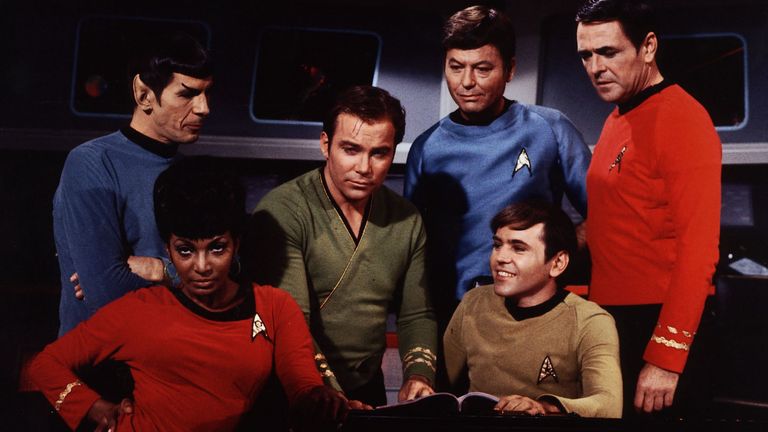
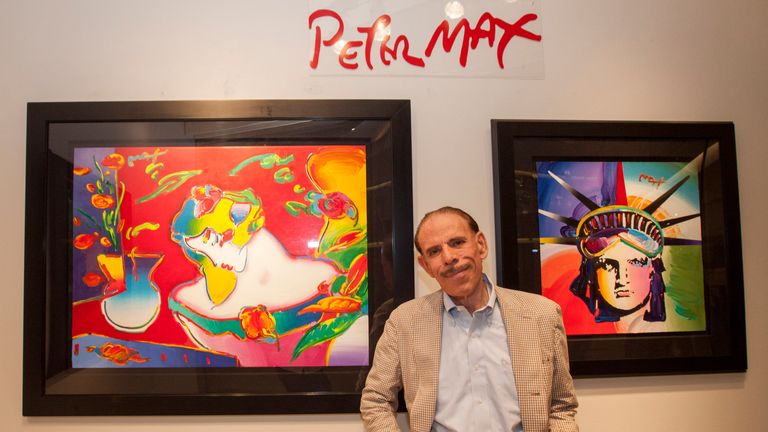
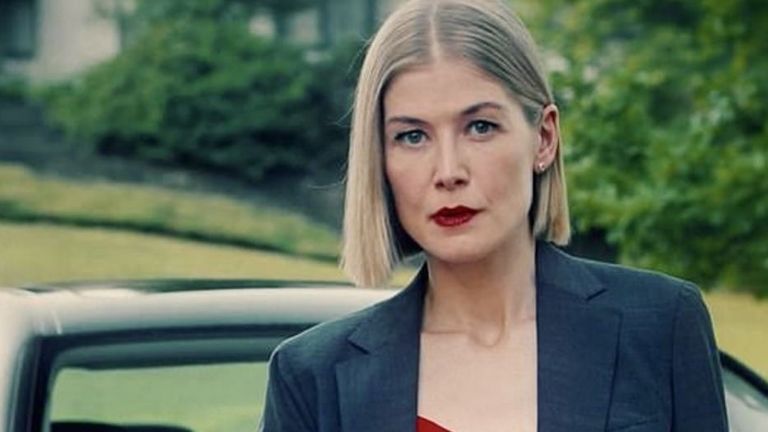
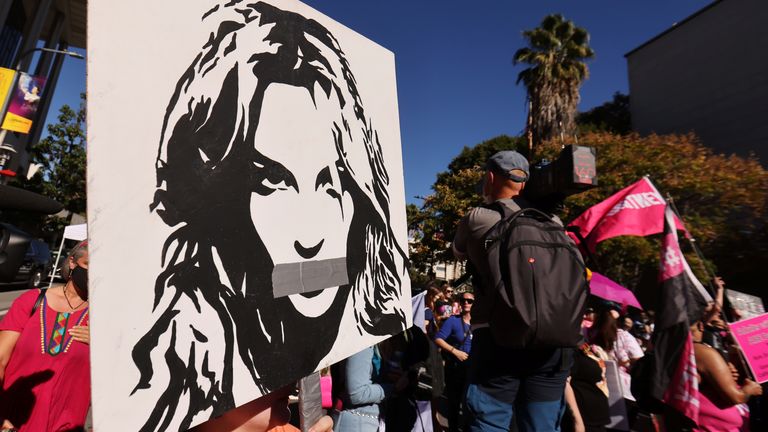
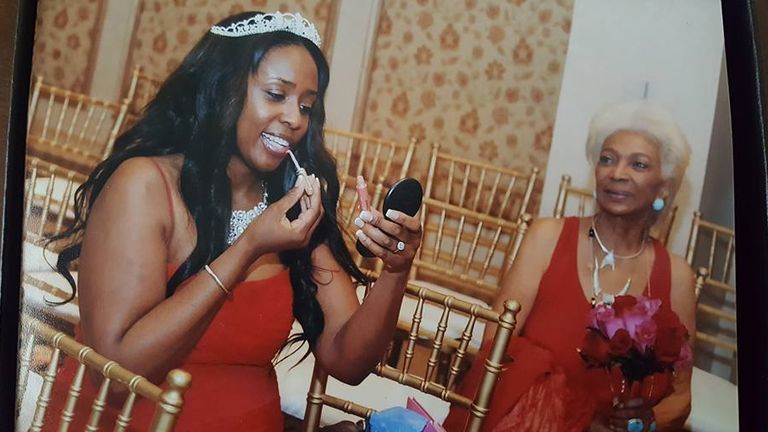

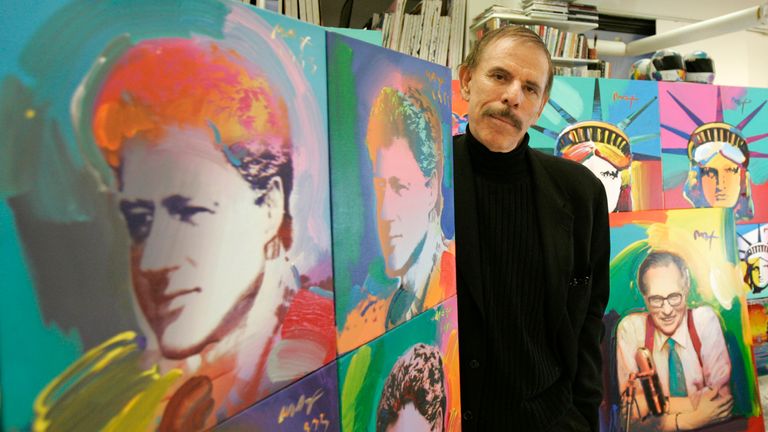
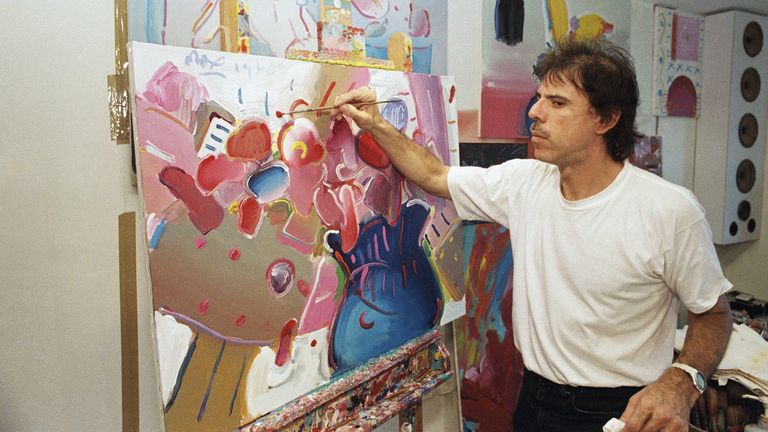

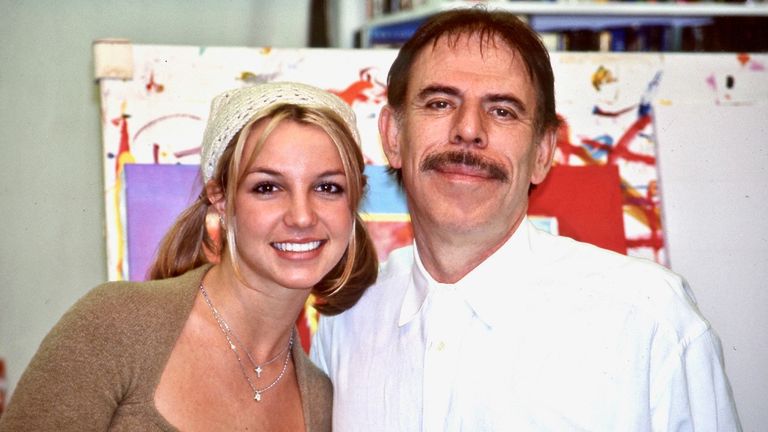





More Stories
Thuggizzle Water: A Legacy of Community Impact and Sustainable Innovation
A Talented Dancer Making Her Mark in the World
Jeremy Clarkson’s column about Meghan becomes most complained about ever